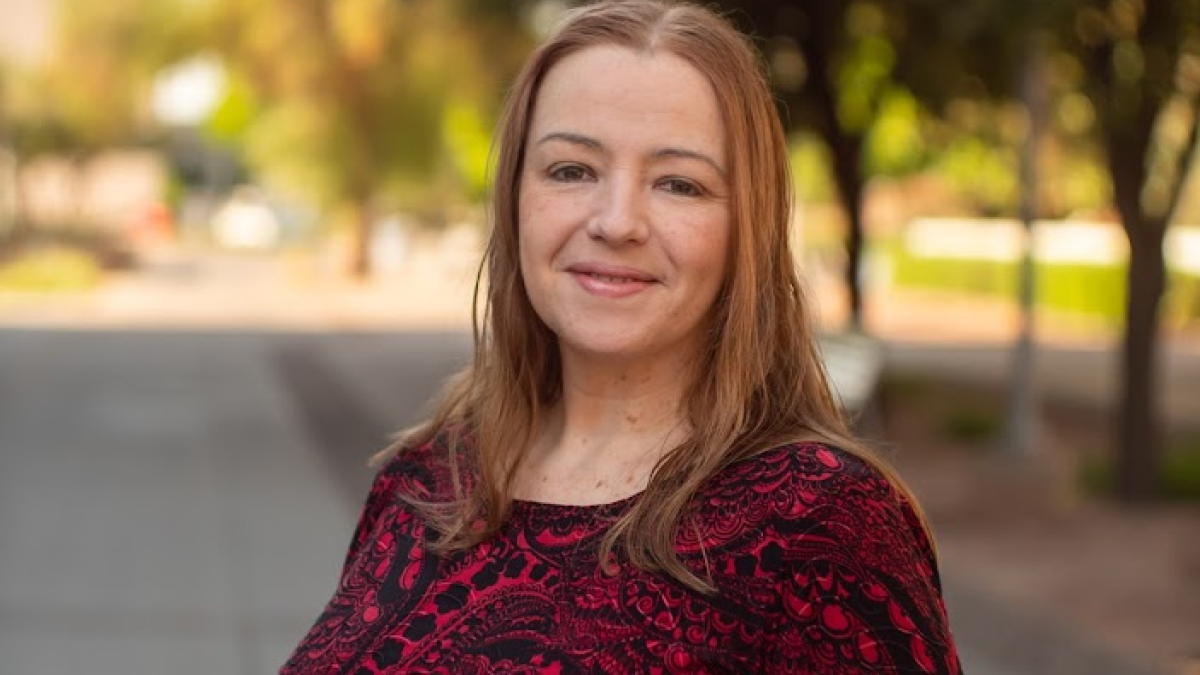Psychology department graduate adviser goes above and beyond

This summer, the ASU Graduate College announced that Katie Ulmer was the recipient of the “Going the Extra Mile” award for not only accomplishing her individual job responsibilities but going above and beyond in support of the Department of Pyschology.
The graduate school journey is exciting, challenging and often confusing for many applicants. While it is a pivotal step for many graduating students who are continuing their academic career, many logistical barriers can stand in the way of successfully applying for or getting into a dream graduate program.
Arizona State University's Department of Psychology has six different PhD programs, with master’s degree programs in political psychology and applied behavior analysis, and a graduate certificate in addiction and substance-use related disorders. Although these all fall within the same department, each program is different and each application requires a level of nuance and understanding in order to show that the student is a good fit.
One unsung hero in this whole process is Katerina Ulmer, a graduate student support coordinator, who manages the graduate academic advising office in the ASU Department of Psychology. Ulmer is a Swiss Army knife with experience across a range of issues, from navigating university policies and procedures to answering application issues and from assigning teaching assistants to launching new degree programs.
This summer, the ASU Graduate College announced that Ulmer was the recipient of the first-ever “Going the Extra Mile” award for not only accomplishing her individual job responsibilities but going above and beyond in support of the department.
The Going the Extra Mile award is an opportunity for ASU staff and faculty to recognize a staff member in a graduate support role who has contributed in a significant way to the academic success or overall experience of graduate students at ASU.
Ulmer has been working in higher education for 18 years and is a champion for sustainable change that improves departmental efficiency. She saw that the previous methodology of tracking graduate student progress, applications and support through a paper system was something that could be improved. Ulmer took it upon herself to shift the entire student records and files system to be digital and accessible through the cloud. While it was initially a push to be sustainable, it turned out to be a fortuitous shift when the COVID-19 pandemic forced everyone into a virtual environment.
What would have been a major problem with paper record-keeping was now accessible to faculty in a remote, synchronous environment.
“This system really came in handy because once the shift to a remote environment happened and everybody went home, faculty were saying, 'How are we going to access the student files if nobody is allowed in the building?'” said Ulmer. “But that is not a problem, because it's all electronic!”
Additionally, the department has seen massive growth in the graduate department, and much of this was due to Ulmer’s hard work. Master’s applications grew 40% in an already successful program and 20% across all PhDs. The system Ulmer devised allowed the small team in the department to review more than 1,500 applications in 2020 and 2021.
“When we saw the name of this award, we knew that she was the perfect choice because ‘going the extra mile’ is something that Katie does every day. Whether she is advising students, creating new systems or answering faculty questions, Katie always brings incredible knowledge, creativity and problem-solving skills to the task,” said Laurie Chassin, Regents Professor of psychology and former director of graduate studies. “We knew this was something she deserved to win, and we are so lucky to have her as our graduate coordinator.”
Journey to graduate advising
“Graduate advising isn’t really a career path that is talked about frequently, but it is the perfect career for me,” Ulmer said.
Ulmer found that during her undergraduate and early graduate career, she wasn’t receiving very much assistance with the multitude of questions that would pop up. She trained herself to be an expert on the course catalog and university rules and became a de facto resource for her friends and colleagues.
She continued to work in various roles from academic advising to university foundation administrative work to academic testing but always returned to advising students. She found that she loved working with the students, but she found that she gravitated toward graduate students in particular.
“The most rewarding thing is around this time of year when students are graduating, conducting summer defenses and trying to meet all the steps and deadlines, I usually get a lot of emails from students saying, 'Thank you. Without you, I couldn’t have crossed that finish line,'” Ulmer said. “While that’s not really true, it feels so great to help them stay on track and accomplish their own goals.”
More Science and technology

ASU students win big at homeland security design challenge
By Cynthia GerberArizona State University students took home five prizes — including two first-place victories — from this year’s…

Swarm science: Oral bacteria move in waves to spread and survive
Swarming behaviors appear everywhere in nature — from schools of fish darting in synchrony to locusts sweeping across landscapes…

Stuck at the airport and we love it #not
Airports don’t bring out the best in people.Ten years ago, Ashwin Rajadesingan was traveling and had that thought. Today, he is…

